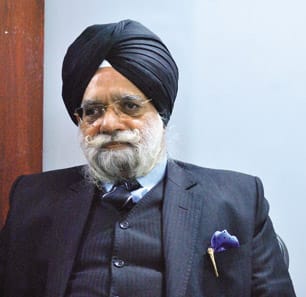Law Schools cannot become teaching shops

Sr. Advocate KTS Tulsi speaks to Abhay Anand about the quality of India’s legal education and the need for Bar Council of India to be more proactive.
Q. How do you look the training that students are getting in Law Schools and the market demand?
A. I think legal education has to focus on analytical and communication skills and both are being provided in good Law Schools. They are also being given theoretical knowledge of the principles of jurisprudence, they are also studying statutes which are of relevance. They are dealing with the latest developments in law; the students these days are fully updated with the latest information that they will produce research of worldwide relevance. So, it is not correct to say that the students are coming out of ivory towers; they are getting exposed to all the legal issues and Indian lawyers can compete with the best in the world.
Q. How would do you compare Law graduates of National Law Schools with that of other colleges?
A. There is a world of a difference; the National Law Schools that have five-year programmes are world class and the students coming from those schools are outstanding. Earlier the situation was that when students were not getting admission in anything else they go for law; however, today it is their first choice. So, the best brains are getting attracted and they are the ones who get admission in National Law Schools. I think this profession is poised for a very bright future.
Q. What are the right kinds of skill sets needed in a graduate to become a successful lawyer?
A. The most important skill is communication; a lawyer has to be good at communication. He should be able to think on his feet and be able to convey it, so oral communication is as important as written communication. Unless you analyze the whole thing in your mind and write it in your own hand, I don’t think a precise document can be produced. Moot courts are perhaps the most vital part of training and those who do well in the moots invariably do well as lawyers.
Q. How far has the Bar Council evolved in setting up the processes for legal education in the country?
A. All the professional bodies come into the hands of elected representatives, and serious professionals don’t want to waste their time in elections. So, the Bar body or the Medical Council go into the hands of those who are good at networking and those who are professionally not very relevant.
Law Schools must have quality so that the young minds can be ignited into thinking, into questioning, into researching, writing and speaking up |
Q. Law schools are mushrooming across the country; do you think it is a good sign for the legal profession?
A. Law Schools cannot become teaching shops and they must have quality so that the young minds can be ignited into thinking, into questioning, into researching, writing and speaking up.
Q. What are the sectors that are going to see a surge in demand for Law graduates in the coming years?
A. Today the business sector is attracting good talents but the most important thing in life is liberty and when your freedom is taken away it hurts the most. The most awarding sector in litigation will be Criminal Law. The products of NLUs are getting absorbed in corporate sector; they are producing lawyers for the corporate sector, making them glorified clerks. The NLUs do not fire their imagination to be performers.
List of colleges accepting exam
Browse Law Colleges by State
Applications for Admissions are open.
Among top 100 Universities Globally in the Times Higher Education (THE) Interdisciplinary Science Rankings 2026
Chandigarh University Admissions 2026
ApplyNAAC A+ Accredited | Among top 2% Universities Globally (QS World University Rankings 2026)
Amity University-Noida LLM Admissions 2026
ApplyAmong top 100 Universities Globally in the Times Higher Education (THE) Interdisciplinary Science Rankings 2026
Manav Rachna University Law Admissions 2026
ApplyAdmissions open for B.A. LL.B. (Hons.), B.B.A. LL.B. (Hons.) and LL.B Program (3 Years) | School of Law, MRU ranked No. 1 in Law Schools of Excellence in India by GHRDC (2023)
RV University, Bangalore | Law Admissions 2026
ApplyExcellent curriculum; an impressive range of electives, besides core law courses. Up to 100% merit scholarship on a first-come, first-served basis
Unitedworld School of Law Admissions 2026
ApplyMoot Court | Mock trials | Legal Aid Clinic
